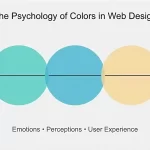Ever watched a master chef effortlessly whip up a gourmet meal and thought, “I could do that!” only to end up with a kitchen that looks like a war zone and a meal that could be mistaken for abstract art? Well, my fellow growth enthusiasts, you’re not alone. But fear not! Today, we’re diving into the world of learning from experts and the magical art of modeling. Buckle up, because we’re about to turn you into a skill-acquiring ninja faster than you can say “personal development.”
The TL;DR for Chronically Rushed Readers (AKA Key Takeaways)
-
Modeling isn’t just for the catwalk – it’s your express ticket to skill town
-
Find your Yoda (expert) and stalk them… professionally, of course
-
Online resources are like all-you-can-eat buffets for your brain
-
Workshops: Where “hands-on” doesn’t mean accidentally setting things on fire
-
Mentorship: It’s like having a personal Google, but with emotions
-
Expertise is contagious – catch it if you can!
Now, let’s dive deeper into the wonderful world of learning from the masters, shall we?
Why Learn from Experts? (Because Reinventing the Wheel is So Last Century)
Picture this: You’re trying to learn how to juggle chainsaws (don’t try this at home, kids). Would you rather:
A) Spend years figuring it out on your own, potentially losing a limb or two in the process B) Watch a seasoned professional demonstrate the technique and learn from their hard-earned wisdom
If you chose B, congratulations! You’ve just saved yourself years of frustration and a hefty medical bill. Learning from experts is like getting a cheat code for life. It’s the difference between stumbling around in the dark and having someone hand you a flashlight and a map.
The Wisdom Factor: Knowledge vs. Expertise
Here’s a mind-bender for you: What’s the difference between knowledge and wisdom? Knowledge is like having a head full of facts – it’s great for trivia nights, but it might not help you when the rubber meets the road. Wisdom, on the other hand, is like having a GPS for life’s trickiest situations.
Experts don’t just know stuff; they’ve been through the trenches and come out the other side with battle scars and stories to tell. They’ve got the kind of wisdom that only comes from making mistakes, learning from them, and then making new, more interesting mistakes.
The Perspective Payoff
When you learn from experts, you’re not just getting information – you’re getting perspective. It’s like having a bird’s eye view of your chosen field. Experts can show you:
-
What pitfalls to avoid (because they’ve probably fallen into all of them)
-
Which shortcuts actually work (and which ones lead to dead ends)
-
How to think about problems in ways you never considered
It’s like having a cheat sheet for life, minus the guilt of actually cheating.
The Art of Modeling: Be Like Mike (Or Whoever Your “Mike” Is)
Modeling isn’t just for the fashion industry anymore. In the world of personal growth, it’s your ticket to the express lane of skill acquisition. But what exactly is modeling? It’s the art of observing, analyzing, and replicating the strategies of those who’ve already mastered what you’re trying to learn.
Think of it as being a skill detective. You’re not just copying what experts do; you’re decoding their secret sauce. It’s like reverse-engineering success, but without the need for a fancy engineering degree.
The GROW Model: Your Personal Growth GPS
Speaking of models, let me introduce you to the GROW model – it’s like GPS for your personal development journey. Here’s the breakdown:
-
Goal: What do you want to achieve? (Hint: “Being awesome” is too vague)
-
Reality: Where are you now? (Be honest, we won’t judge)
-
Options: What could you do to reach your goal? (Sky’s the limit here)
-
Way Forward: What will you do? (Time to commit, folks)
Using the GROW model alongside expert modeling is like having a superpower. You’re not just aimlessly copying; you’re strategically planning your path to awesomeness.
Finding Your Guru: The Art of Expert-Hunting
Now that you’re sold on the idea of learning from experts (and if you’re not, what are you even doing here?), it’s time to find your very own Yoda. Here are some ways to track down these elusive creatures:
1. The Internet: Your 24/7 Expert Buffet
The internet is like an all-you-can-eat buffet of expertise. From YouTube tutorials to online courses, you can find an expert on just about anything. Want to learn underwater basket weaving? There’s probably a course for that.
Pro Tip: Look for experts who not only show you what to do but explain why they do it. Understanding the reasoning behind actions is key to true learning.
Do: Seek out experts with a track record of success and positive reviews from learners. Don’t: Fall for the “get rich quick” or “master this skill in 5 minutes” schemes. If it sounds too good to be true, it probably is.
2. Workshops: Where “Hands-On” Doesn’t Mean Setting Things on Fire
Workshops are like the Disneyland of learning. You get to play with new skills in a controlled environment, guided by experts who’ve been there, done that, and probably have the t-shirt to prove it.
Use Case: Let’s say you want to learn public speaking. A workshop could give you the chance to practice in front of a live audience, get immediate feedback, and learn techniques for managing stage fright – all without the pressure of a real high-stakes presentation.
3. Mentorship: It’s Like Having a Personal Google, But With Emotions
Finding a mentor is like striking gold in the personal development world. It’s having a walking, talking encyclopedia of knowledge who’s invested in your success. Plus, they might even buy you coffee.
Do: Be clear about your goals and what you hope to gain from the mentorship. Don’t: Expect your mentor to do the work for you. They’re guides, not magical skill-bestowing fairies.
4. Books: Because Sometimes, Expertise Comes in Paperback
Don’t underestimate the power of a good book. It’s like having a conversation with an expert, minus the awkward small talk. And you can do it in your pajamas!
Pro Tip: Look for books that offer practical exercises or action steps. The best expert advice is the kind you can actually apply.
The Modeling Process: Become a Skill-Acquiring Ninja
Now that you’ve found your expert, it’s time to put on your ninja suit and start modeling. Here’s how:
1. Observe: Channel Your Inner Sherlock
Watch your chosen expert like a hawk. Notice not just what they do, but how they do it. Are they left-handed? Do they have a lucky charm? No detail is too small for your keen eye.
Do: Take notes, lots of them. Your future self will thank you.
Don’t: Get so caught up in observing that you forget to actually try things out.
2. Analyze: Put on Your Thinking Cap (The Fancy One)
Break down what you’ve observed into manageable chunks. What patterns do you see? What techniques are they using? It’s like solving a puzzle, but the prize is a new skill.
Pro Tip: Try to understand the principles behind the expert’s actions. Knowing why something works is often more valuable than just knowing what works.
3. Practice: Because “Perfect” Comes After “Hilariously Bad”
Now it’s your turn to give it a shot. Remember, the first pancake is always a bit wonky. Embrace the awkwardness and keep at it.
Do: Start with small, manageable tasks. Rome wasn’t built in a day, and your expertise won’t be either.
Don’t: Get discouraged if you’re not immediately amazing. Even experts had to start somewhere.
4. Refine: Polish That Diamond in the Rough
As you practice, keep referring back to your expert model. Tweak your approach, experiment with different techniques, and gradually refine your skill.
Use Case: If you’re learning to code, you might start by copying an expert’s project exactly. Then, as you understand the principles, you can start modifying and expanding on it to make it your own.
5. Repeat: Rinse and Repeat (But Maybe Skip the Rinse)
Keep cycling through these steps. Learning is a journey, not a destination. Unless your destination is “Expertville,” in which case, full steam ahead!
The Benefits of Modeling: Why It’s Better Than Sliced Bread
1. Speed Learning: Because Ain’t Nobody Got Time for That
Modeling accelerates your learning curve faster than a cheetah on roller skates. You’re standing on the shoulders of giants, which means you get to skip the “figuring it out” phase and jump straight to the “nailing it” phase.
Fun Fact: Experts may solve routine problems faster than novices, but they often spend more time analyzing complex problems. It’s not about quick fixes; it’s about deep understanding.
2. Confidence Boost: Fake It Till You Make It (But Actually Make It)
There’s something empowering about following in the footsteps of someone who’s already succeeded. It’s like having a roadmap to awesomeness.
Pro Tip: Use the “mirror technique.” Practice mimicking your expert’s body language and tone. It can help you internalize their confidence and expertise.
3. Avoiding Pitfalls: Because Learning from Your Own Mistakes is So Overrated
By modeling experts, you get to learn from their mistakes without having to make them yourself. It’s like having a “Get Out of Jail Free” card for life’s learning curve.
Do: Ask experts about their biggest mistakes or challenges. Their war stories can be your battle strategy.
Don’t: Assume that just because an expert does something, it’s the only way. Sometimes, innovation comes from questioning the status quo.
4. Networking Opportunities: It’s Not What You Know, It’s Who You Know (But It’s Also What You Know)
The process of finding and learning from experts often leads to valuable connections. Before you know it, you’ll be rubbing elbows with the who’s who of your chosen field.
Use Case: Attending a workshop might lead to meeting other enthusiasts in your field. These connections can turn into study groups, collaborations, or even job opportunities.
Potential Pitfalls: Don’t Fall Into These Traps (We’ve Already Done That for You)
1. The Copy-Cat Syndrome: Meow?
Remember, the goal is to model, not to become a carbon copy. Add your own flair and personality to what you learn.
Do: Use modeling as a starting point, then experiment and develop your own style.
Don’t: Lose your unique voice in an attempt to be exactly like your chosen expert.
2. Expert Overload: Too Many Cooks Spoil the Broth
Don’t try to model too many experts at once. You’ll end up like a confused chameleon, constantly changing colors but never quite fitting in.
Pro Tip: Start with one or two primary expert models. Once you’ve got a solid foundation, you can branch out and incorporate insights from others.
3. The Imposter Syndrome: “Who, Me? An Expert?”
As you start to master new skills, you might feel like a fraud. Remember, even experts were beginners once. Embrace the journey!
Do: Keep a “win journal” to track your progress and remind yourself how far you’ve come. Don’t: Compare your beginning to someone else’s middle. Everyone’s learning journey is different.
The Grand Finale: Your Call to Action (Because What’s a Blog Post Without a Little Peer Pressure?)
So, dear reader, are you ready to embark on your expert-modeling adventure? Here’s your mission, should you choose to accept it:
-
Pick a skill you’ve always wanted to learn.
-
Find an expert in that field (YouTube counts, we’re not judging).
-
Observe, analyze, and start practicing.
-
Come back and tell us all about your journey to expertise.
Remember, the path to mastery is paved with curiosity, persistence, and probably a few hilarious mistakes along the way. Embrace the process, channel your inner expert, and before you know it, you’ll be the one others are trying to model.
Now go forth and conquer, you skill-acquiring ninja, you!
Bonus Tip: As you progress in your skill, don’t forget to pay it forward. Share your knowledge with others. Teaching is one of the best ways to reinforce your own learning and maybe even discover gaps in your understanding. Plus, it’s a great way to give back to the community that helped you grow.
Remember, expertise isn’t just about knowing stuff; it’s about developing the kind of wisdom that can only come from experience, reflection, and a healthy dose of trial and error. So go out there, find your experts, model like your personal growth depends on it (because it does), and who knows? Maybe one day, you’ll be the expert others are trying to model.
Now, if you’ll excuse me, I have some chainsaws to juggle. (Just kidding! Please don’t try that at home. Or anywhere, really.)
Related Reads:
-
The Art of Productive Failure: Turning Mistakes into Masterpieces
-
Mind Hacks for Rapid Skill Acquisition: Unleash Your Inner Learning Superhero
-
From Novice to Know-It-All: Accelerating Your Journey to Expertise









